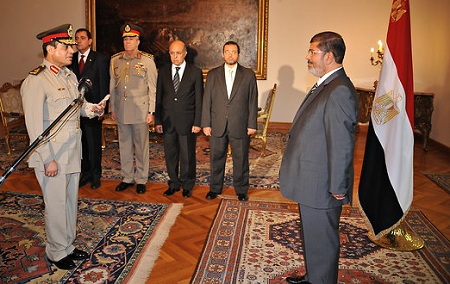
A new poll out in Québec Friday from Leger Marketing shows an increasingly three-way race in advance of the snap September 4 election.

The two longstanding parties in Québec are essentially tied. The sovereigntist (and more leftist) Parti québécois (PQ) wins 32% of Québécois voters, while the federalist (and more centrist) Parti libéral du Québec (Liberal Party, or PLQ) of premier Jean Charest wins 31%. Charest, who has led Québec since 2003, is seeking his fourth consecutive mandate.
But the real surprise is the newly-formed Coalition avenir Québec (CAQ), which got 27% — although the CAQ led polls briefly when it was formed in January 2012, it had steadily lost support.
And, perhaps, for good reason — it’s a relatively aimless group that has been vague about its position on key issues, such as a proposed hike in student tuition fees. It’s been just as cagey on more fundamental stands: whether its economic program is right or left, or whether it is more sovereigntist or federalist.
Founded by François Legault (pictured above, left), a longtime minister in the PQ governments of the 1990s and a leader of the pro-independence movement in the 1995 sovereignty referendum, the CAQ incorporates some other PQ stragglers and much of the old Action démocratique du Québec, the party led by Mario Dumont that made significant gains in the 2007 Québec election (only to watch those gains evaporate in the subsequent 2008 election).
Yet there’s precedent from recent Québécois elections to indicate that voters are weary of both the Liberals and the PQ:
- As noted, in 2007, Mario Dumont’s ADQ won 41 seats to Québec’s 125-seat Assemblée nationale, leaving Charest’s Liberals with a 48-seat minority government and pushing the PQ (with just 36 seats) out as the official opposition.
- In the 2011 general election, the progressive New Democratic Party won 59 of Québec’s 75 ridings for seats in the House of Commons. The NDP, led by the late Jack Layton, had previously not been a factor in Québec’s federal elections; in 2011, it reduced the PQ’s federal counterpart, the Bloc québécois to just four seats, despite its domination of Québec’s federal delegation since 1993.
Like the ADQ in 2007, the CAQ is leading polls in and around Québec City. But also like in 2007, anglophone Quebeckers are still overwhelmingly in favor of the Liberals, the PQ has a steady lead among francophone voters, and the CAQ lags behind both parties in and around Montréal. That result would lead to three-way deadlock that favors a minority Liberal government — unless the CAQ can somehow break through to the core supporters of either the PQ or the Liberals.
Two recent developments indicate that the CAQ could pull off that kind of upset.
Legault has emphasized the recruitment of high-profile candidates, which paid off last week when popular anti-corruption figure and former Montréal police chief Jacques Duchesneau (pictured above, right) announced last week that he would stand as a candidate for the CAQ. That put Charest on the defensive — his government is under investigation for corruption charges related to tying government construction contracts to political cash. Meanwhile, prominent anglophone Quebecker Robert Libman gave his support to the CAQ and trashed Charest for using scare tactics against the CAQ.
But the election remains three weeks away and it’s unclear if the CAQ may be surging too soon — to say nothing of whether voters trust Legault and his slippery platform enough to make him premier.
Continue reading Newly-formed third party CAQ rises in Québec →


